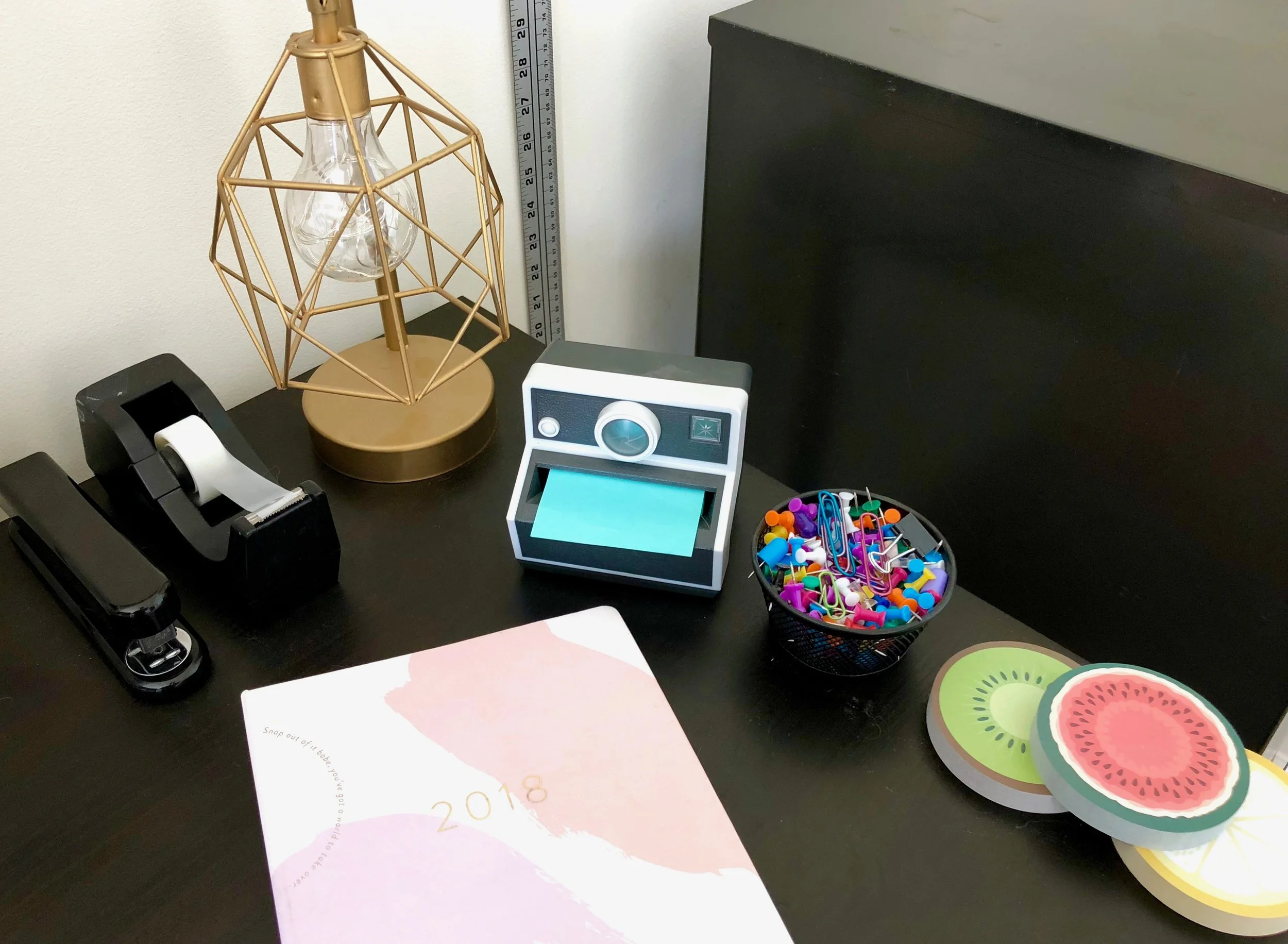If you've made your way to this post then that probably means that you've been accepted to DPT school and if so - YAY, CONGRATS!! If not and you're currently applying and just curious about what needs to be completed before PT school and what kind of supplies you will eventually need, then that's just as exciting! Welcome!
I felt like my to-do list was a mile long as I was preparing for PT school, but there's really no need to stress yourself out! There will be certain little tasks here and there that need to be completed, but the bulk of the preliminary things you need to complete will probably be during your orientation. But here's everything I needed to know, complete, and buy to prepare for my first semester!
Information to find out about:
Do I need to register for classes myself or will the program do it for me?
What kind of loans/scholarships/financial aid am I eligible for and how do I apply for them?
What you will likely need to complete before PT school starts:
Pay program deposit
Get a first aid, CPR, and AED certification
Become a member of the APTA and state chapter
Make sure the school has a hard copy of your transcripts
Set up your school email/web account
Fill out health/immunization forms and get necessary vaccines
Complete a background check
Complete loans, financial aid, and pay tuition
Buy a parking pass
Secure housing/roommate(s)
Supplies you will likely need for your first semester of PT school:
Click here for a downloadable version of the following list.
Required textbooks
Textbooks are very expensive and the costs add up even quicker in grad school than they do in undergrad. But, trust me when I say you should try to get your hands on all of the required textbooks for your courses. In some courses, you may be able to share a textbook with someone else (and essentially share the cost) or even download an electronic copy for free (2nd year students passed down some downloadable PDF versions to my class). But in the end, you want to make sure you have access to all of the course material and never miss out on learning or understanding a concept because you don't have access to the textbook.
Scrubs
For anatomy lab, but also for future clinical rotations
I use Jockey brand - they are super comfortable and I love them! The price for scrubs can add up fast if you go for high-quality brand name ones. Cheaper styles are available at places like Walmart or thrift stores, but I recommend investing in at least one nice pair of scrubs that will last! If your school doesn't require a specific color, then I recommend the colors blue, grey, and/or black (dark colors will show the least amount of "yucky stuff").
Scalpel blades
For anatomy lab (if not provided) - sizes 10, 20, 21, or 22 are the best for dissection
Best to order on Amazon
Nitrile rubber gloves
For anatomy lab - I spent a lot of extra time in the cadaver lab and probably used ~150 gloves in one semester, so I recommend starting off with at least the standard-sized box of ~100 gloves
Available on Amazon, at Walmart, or at most drug stores (i.e. Walgreens or Rite Aid)
Clinical kit (gait belt, goniometer, stethoscope, reflex hammer, tape measurer, pulse oximeter, and blood pressure cuff)
You will probably get a school code to The Medical Store or another online site to order a nicely, pre-organized kit that includes all of these instruments
I also kept a mini first-aid kit in my bag, along with extra pairs of gloves
Laptop, iPad/tablet, and Apple Pencil/writing stylus
Your program will likely supply you with these kind of technological devices. However, if they don't, make sure you have a reliable means of accessing all of the information and resources you need to be successful!
I'm not sure what the standard is across the board for supplying these items, but you do not need all of this to be successful - I think that having a good, functioning, lightweight, portable laptop is essential, but I could live without the iPad and Apple Pencil (however, I do take most of my notes with these two tools via the Notability app)
Desk (cute dog not included - must buy separately)
Trust me when I say having a neat, at-home study space will make all the difference in your learning experience!
Printer with extra ink cartridges and computer paper
Not only is it a good idea to print out your typed/electronic notes, but there will be numerous different things you may need to print to turn in, or even just have hard copies of for yourself
Binders with transparent sheet protectors, tab dividers, and paper (computer paper or notebook paper) for notes
Organization is key! Don't be that person that has all of their notes and papers for five different classes shoved into one binder - organize your study materials nicely! Being organized makes all the difference in being mentally prepared to handle study tasks.
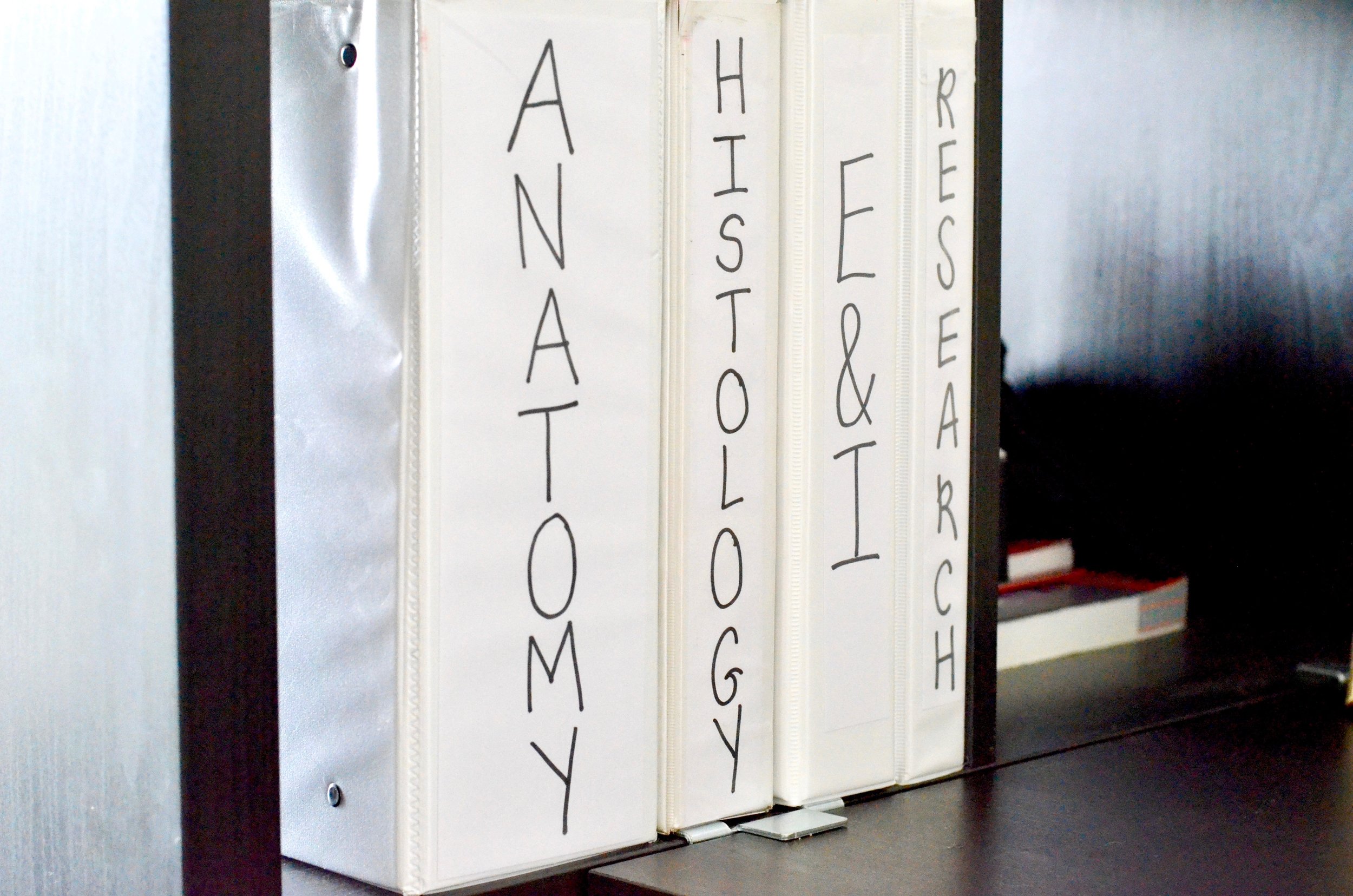
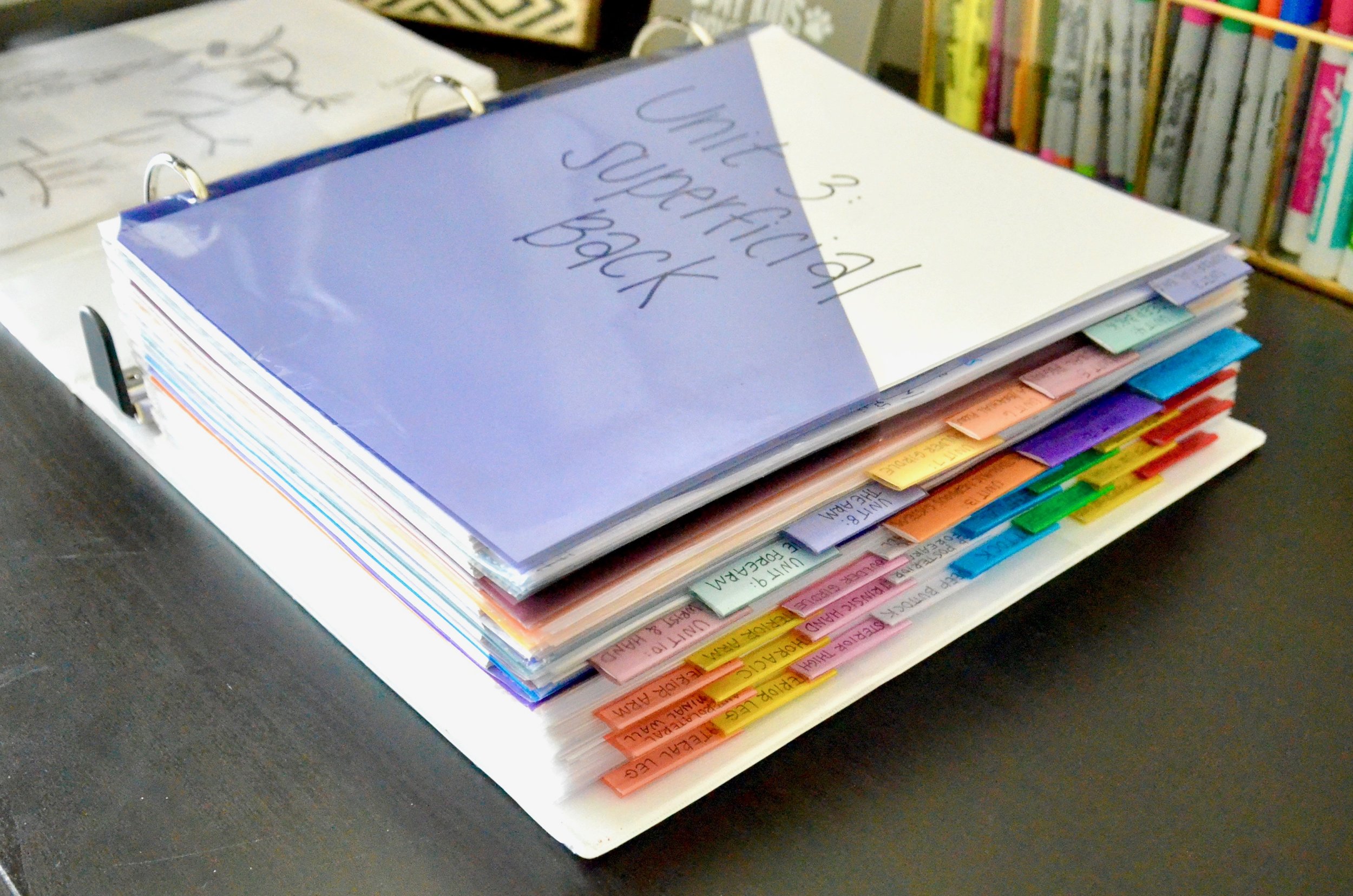
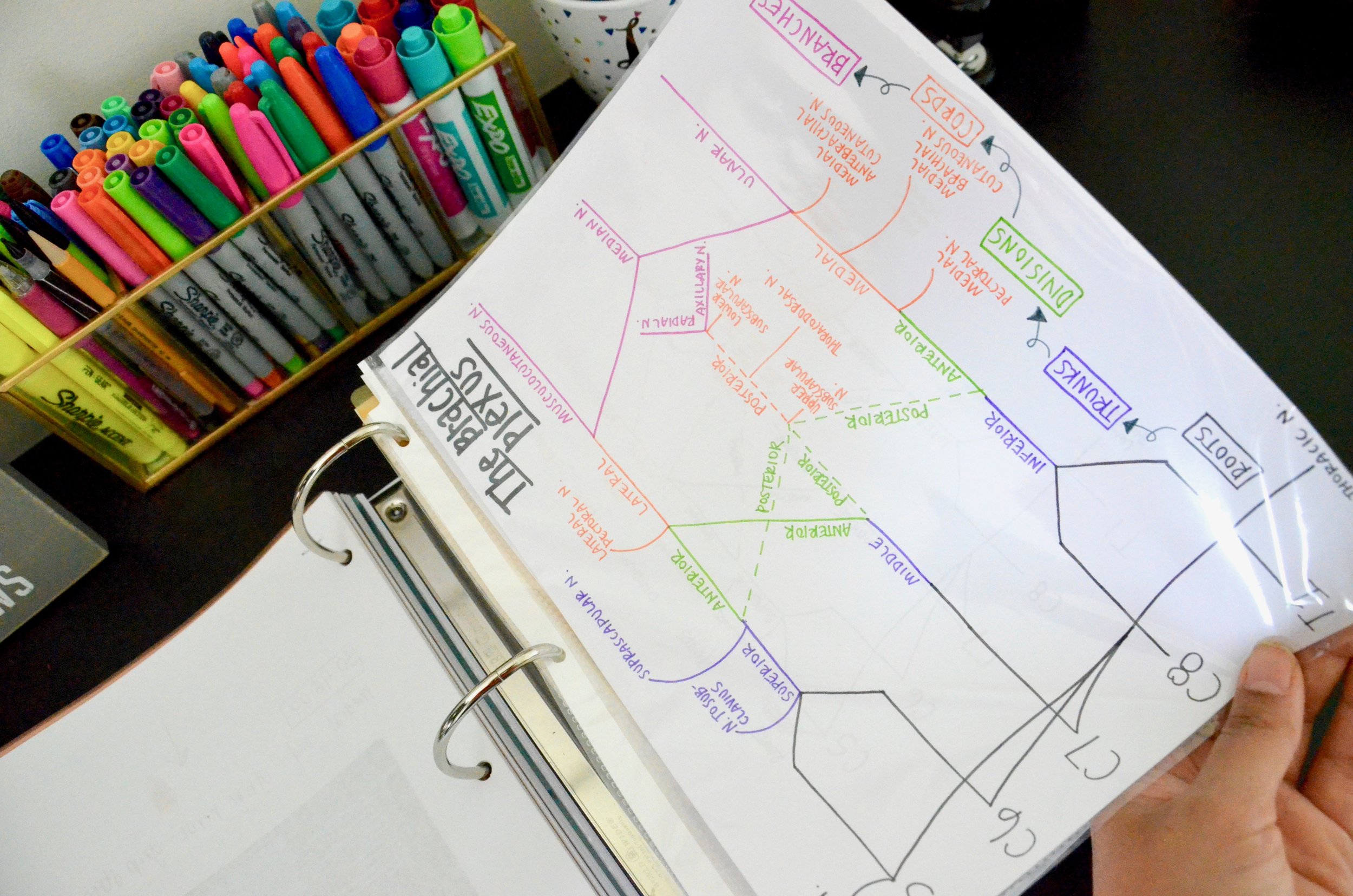
Pens, pencils, colored pencils, highlighters, and markers
Not only is having pretty writing utensils fun, but it will definitely take your note-taking skills to a whole new level! Drawing out pictures and concepts will help you stay organized with a systematic way to label things. It will also be much easier to recall information later on when you can remember detailed images of your colorful notes and drawings.
Dry erase board (+ dry erase markers and eraser)
Y'all - dry erase boards are MAGICAL study tools and I definitely recommend getting one for your at-home study space!! I bought this one from Amazon and it is SO nice having a dry erase board at home since it's usually hard to find an open one at the library. I do most of my studying at home and use the dry erase board daily to quiz myself and review study materials, mainly drawing out pictures, diagrams, flow charts, etc. It would also be helpful to have a second, small, portable dry erase board to take with you on the go!
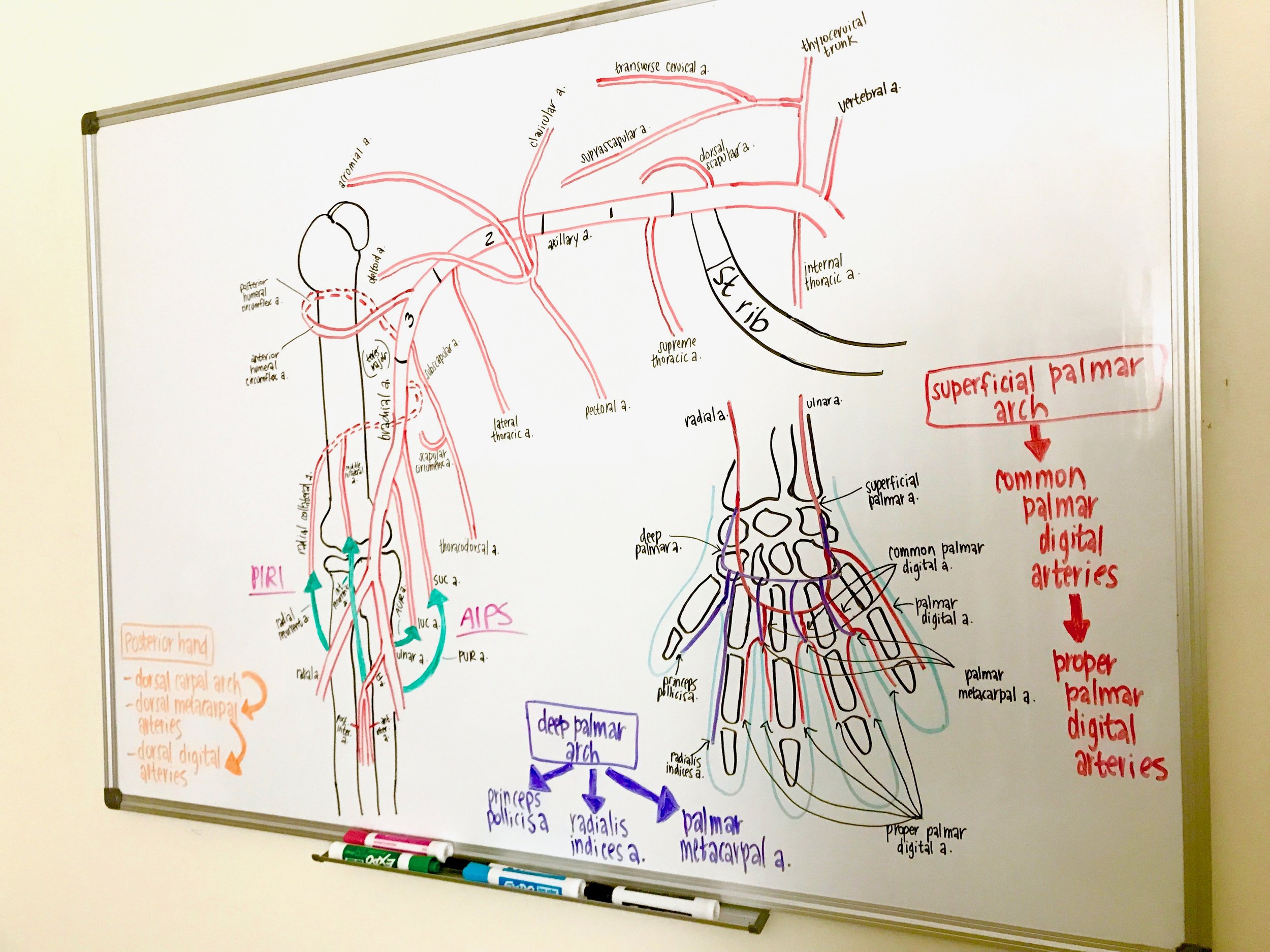
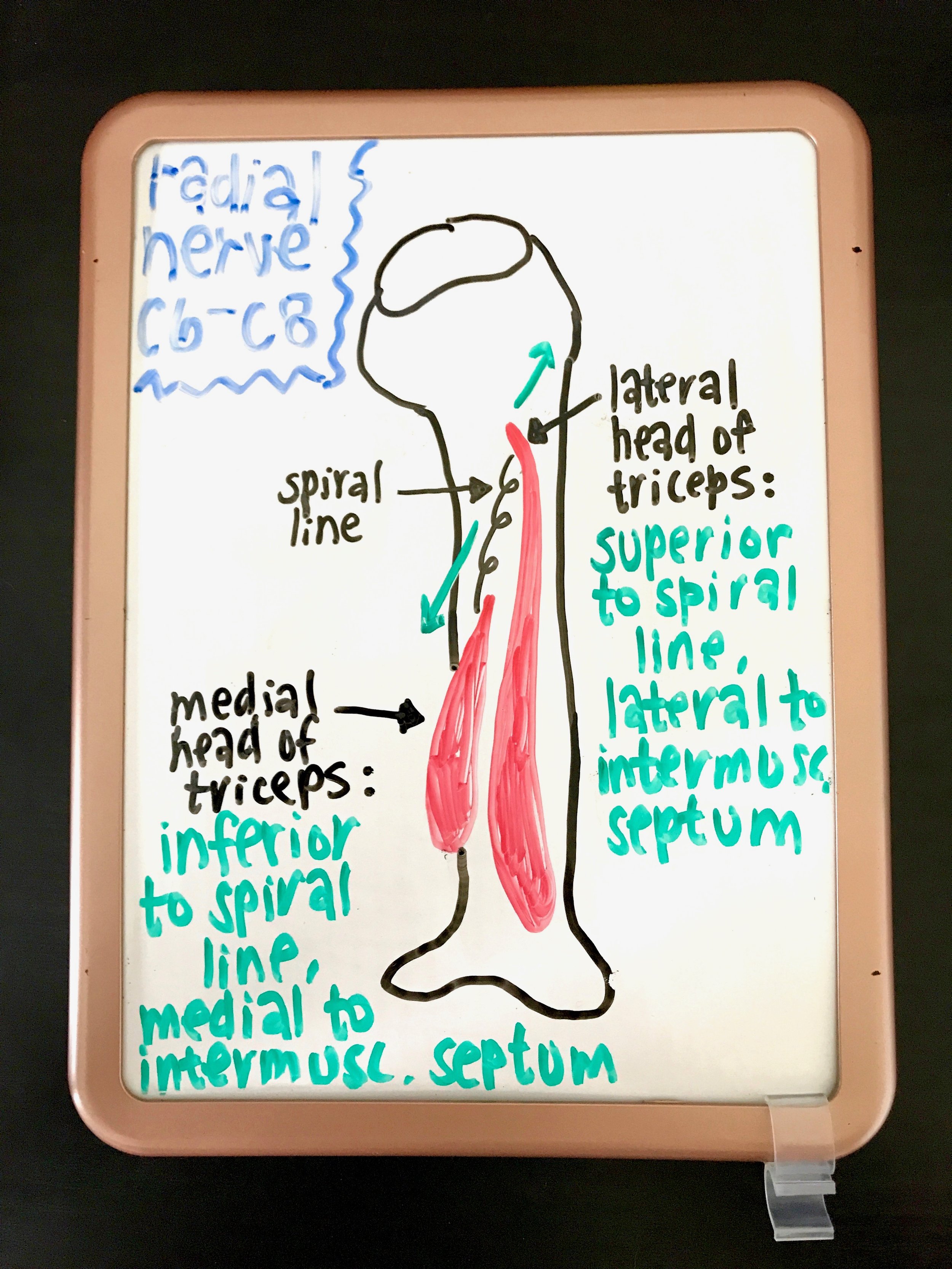
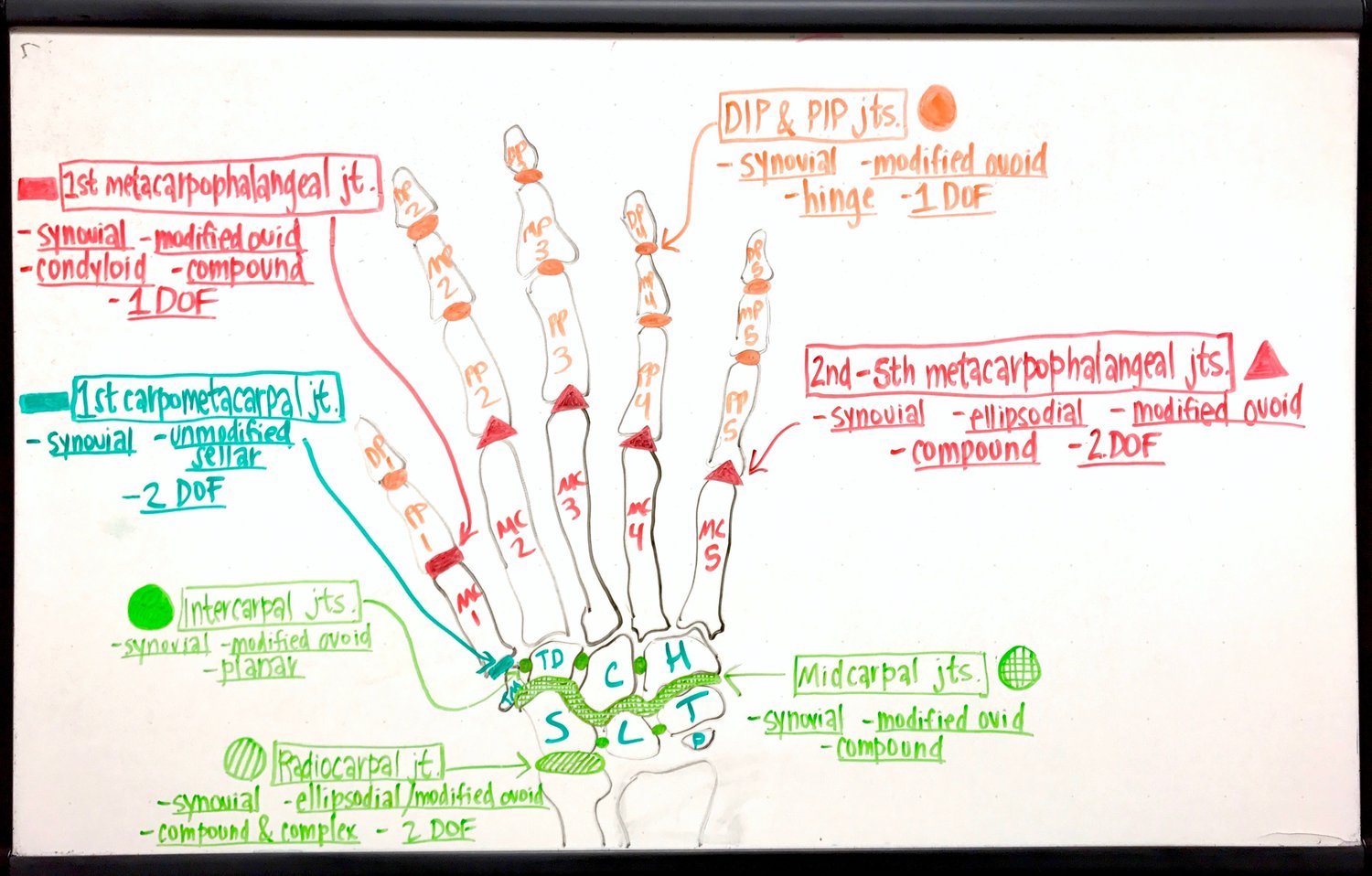
Clipboard
A great tool for studying on the go and ESPECIALLY great for having a hard surface to take notes on during practicals and in clinical settings
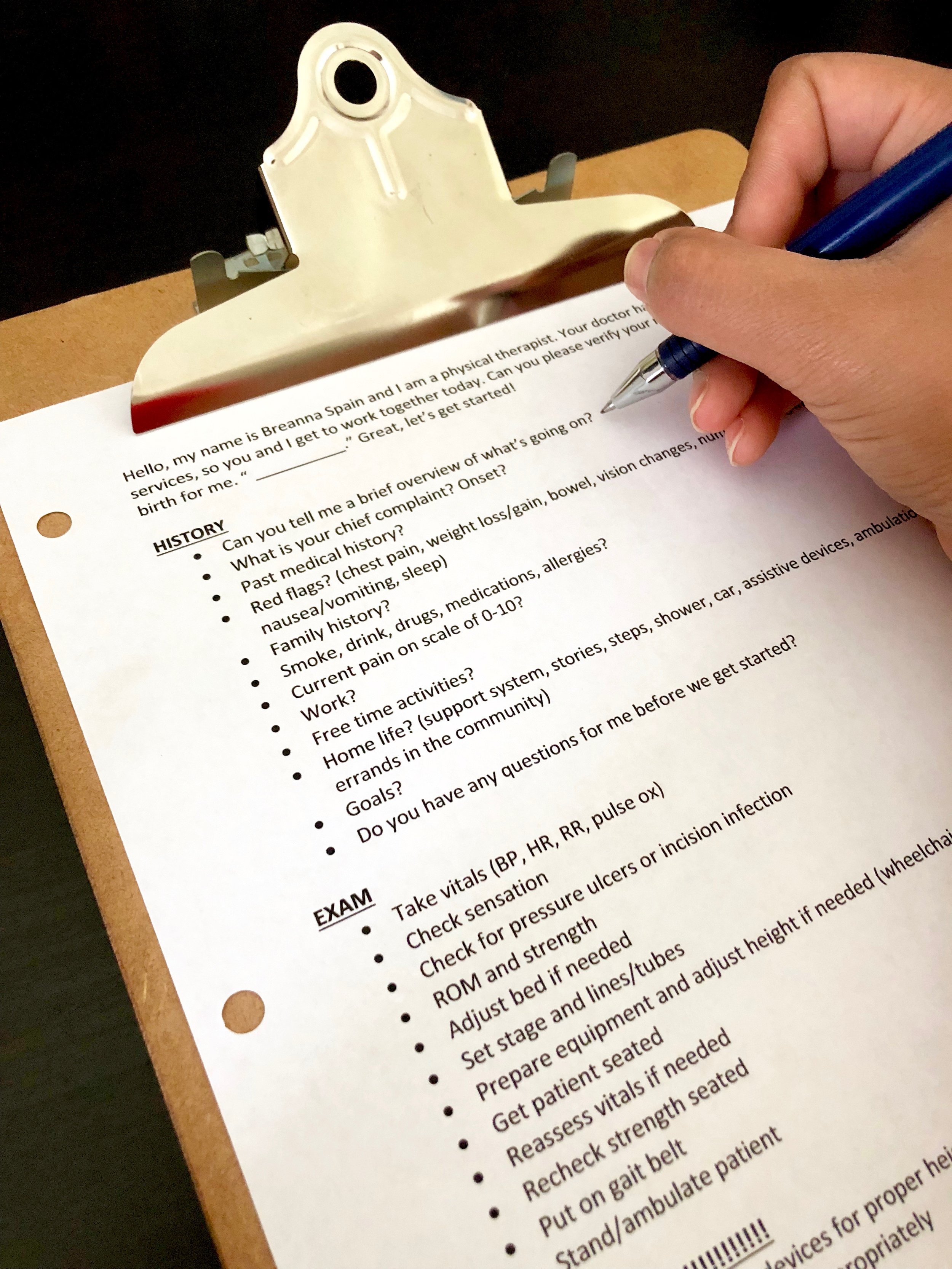
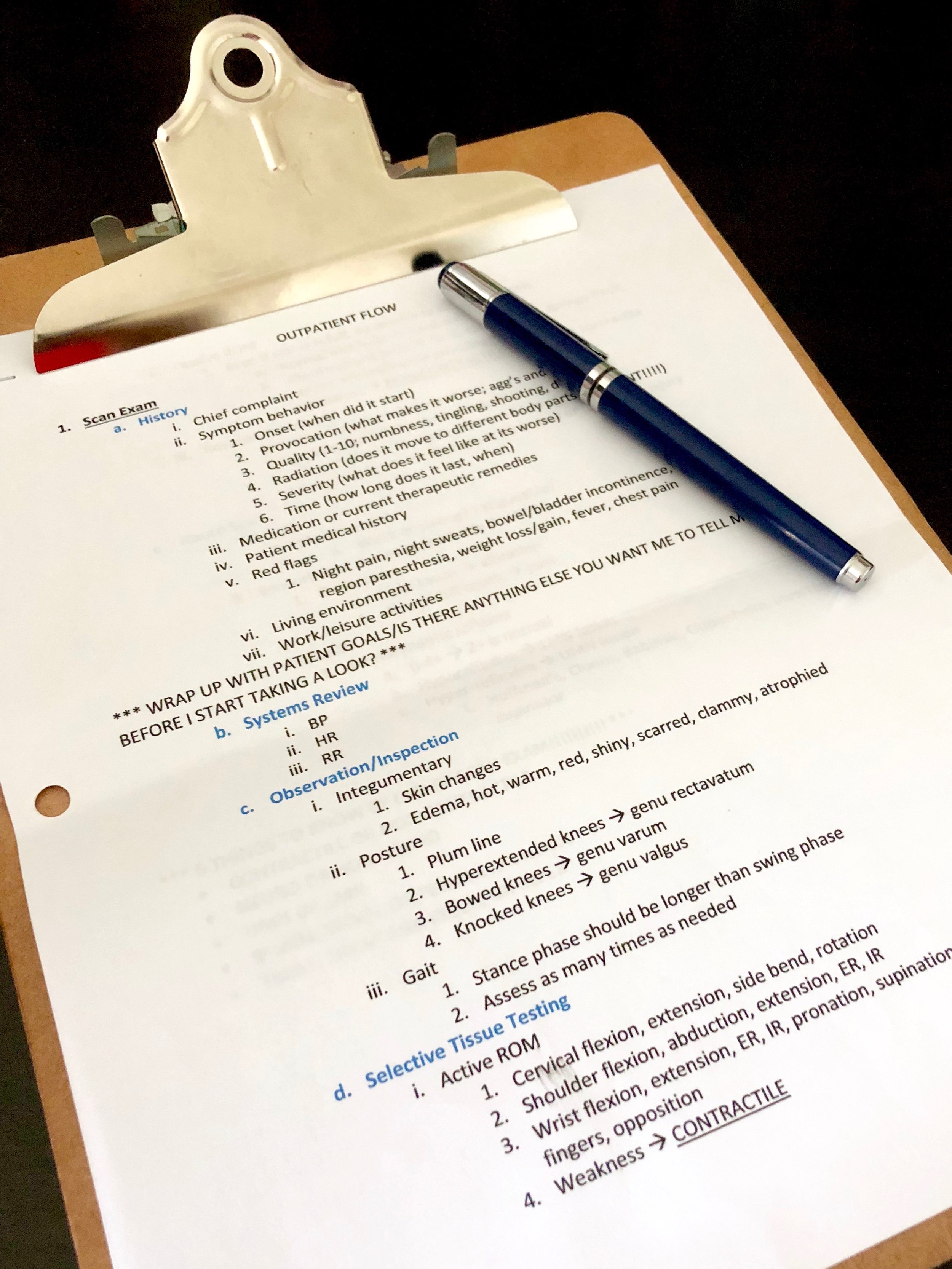
Extras:
Bulletin board + thumb tacks (or magnets if it's magnetic)
Stapler + extra staples
3-hole punch
Calculator
Notebooks
Index cards
Sticky notes
Page flags
Tape
Ruler
Paper clips
Planner (optional but you better go ahead and get yourself one to be organized and stay on top of everything!!!)
I typically use a Happy Planner but haven't snagged a new one yet, so right now I'm using this simple, super cute one from TJ Maxx that was only 6 bucks!
I hope you found this post helpful and are successfully preparing for DPT school with as little stress as possible! As always, let me know if you have any questions and best of luck on your journey! :)










